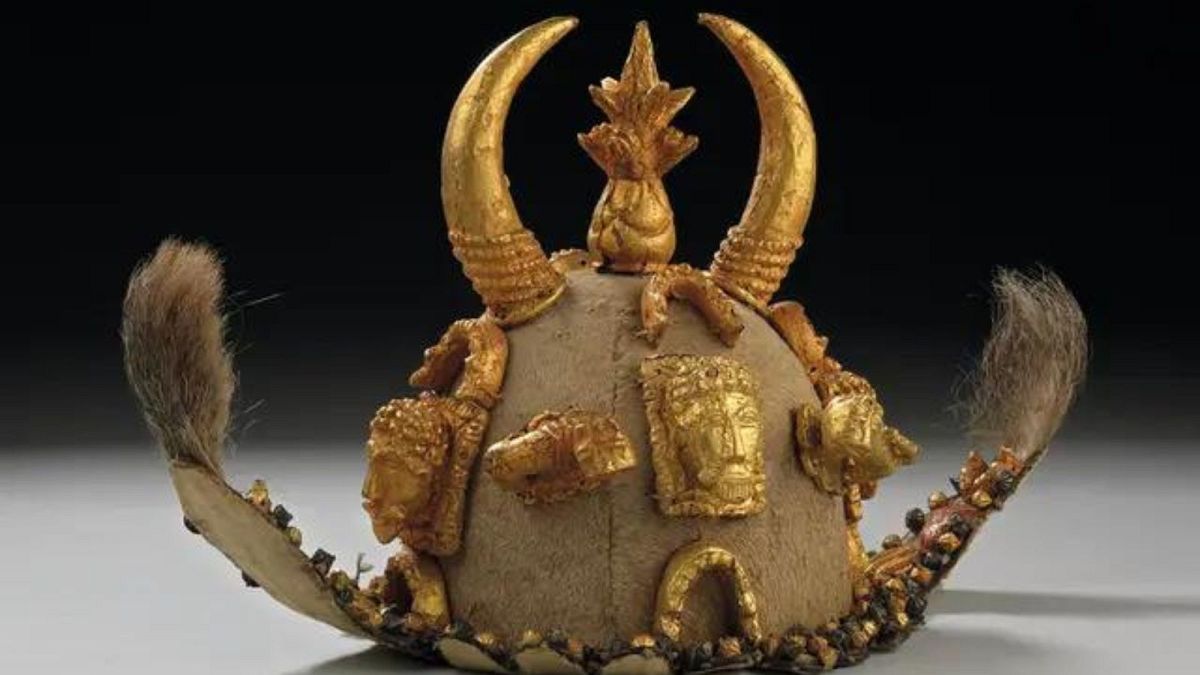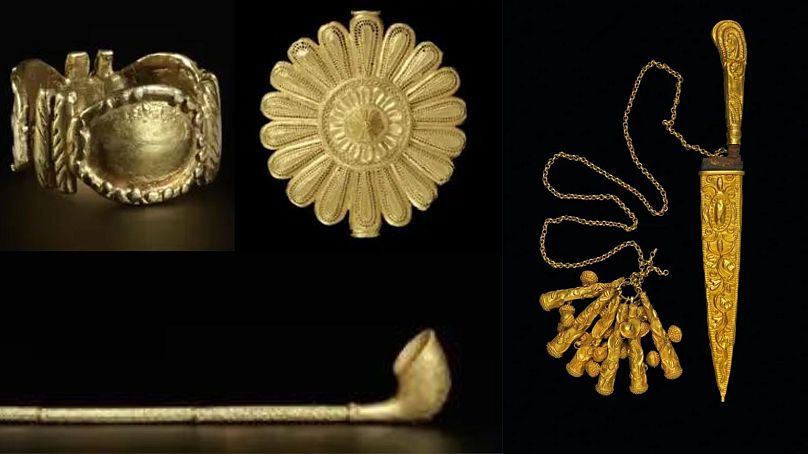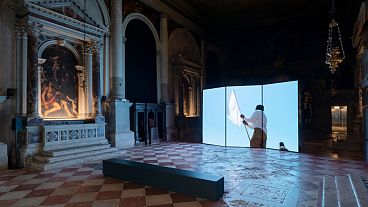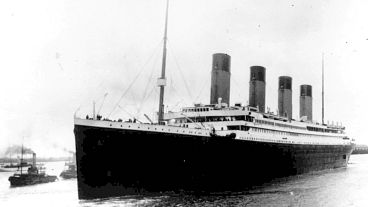The UK is returning a selection of Asante Gold looted from Ghana over 100 years ago in a historic loan deal.
Two of the UK’s leading national museums are set to loan back a selection of artefacts taken from Ghana over 100 years ago.
The Victoria & Albert Museum (V&A) and the British Museum have signed a loan agreement to return 32 items of royal regalia. Most of the pieces will be seen in Ghana for the first time in 150 years.
The V&A will lend 17 items, while the British Museum will send 15 pieces under the three-year loan deals – with an option to extend for the same amount of time, the BBC has reported.
The items were taken during wars in the 19th century between the UK and the Asante, including a ceremonial cap decorated with gold ornaments, a sword of state, gold badges worn by officials, and a gold peace pipe.
A joint statement by the BM and V&A acknowledges that the objects seized had “cultural, historical and spiritual significance to the Asante people”. The seizures are also “indelibly linked to British colonial history in West Africa”.
The Ghanian loan deal was agreed with Otumfo Osei Tutu II, the current Asante king known as the Asantehene.
The items will reportedly go on display at the Manhyia Palace Museum in Kumasi, the capital of the Asante region, to celebrate the Asantehene's silver jubilee.
Tristram Hunt, director of the V&A, said the gold items taken from the court of the Asante King are the equivalent of "our Crown Jewels".
Hunt also said when museums "hold objects with origins in war and looting in military campaigns, we have a responsibility to the countries of origin to think about how we can share those more fairly today.”
The issue is that some national museums in the UK - including the V&A and the British Museum - are banned by law from "deaccessioning" items in their collections, ie: permanently giving back contested items in their collections. Loan deals like the historic deal with Ghana are seen as a way to allow objects to return to their countries of origin. However, a recurring argument is that loans imply the UK’s ownership of disputed artefacts.
Hunt is advocating a change in the law, and has stated that he would like to see "more freedom for museums, but then a kind of backstop, a committee where we would have to appeal if we wanted to restitute items".
Some see any change in this regard as a direct threat to British museums, and fear that these institutions would lose some of their prized items.
Still, while the Ghana loan has been largely applauded, there is still a long way to go, as many countries continue to seek the repatriation of their treasures, and the UK face long-running repatriation disputes.
The issue of the Parthenon Marbles is one of the most publicised examples.
Greece has long demanded the return of the 2,500-year-old frieze that was taken from Athens in the early 19th century by British diplomat Lord Elgin. The classical sculptures are displayed in the British Museum.
Last year, British Prime Minister Rishi Sunak escalated his war of words with the leader of Greece, accusing Prime Minister Kyriakos Mitsotakis of trying to "grandstand" over the disputed Parthenon Marbles. Mitsotakis, meanwhile, said the dispute had helped draw international attention to Greece’s longstanding claim to the artefacts.
Athens wants them returned so they can be displayed alongside the rest of the Parthenon sculptures at a purpose-built museum in Athens.
The British Museum’s chair of trustees, George Osborne, recently said that he was looking for a "practical, pragmatic and rational way forward".




